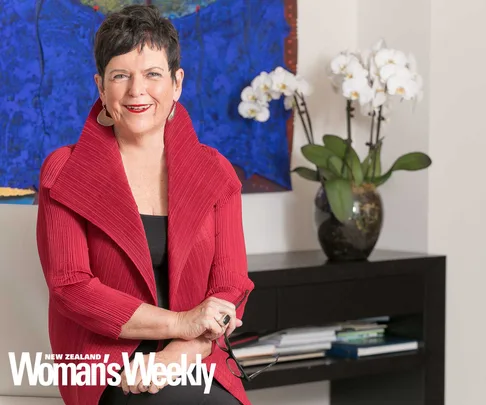Dame Jenny Shipley‘s coffee table tells you a lot about New Zealand’s first female prime minister. A copy of A History of New Zealand Women lies at the bottom of a pile of heavy books, along with a paperback entitled You Have the Power to Change Stuff.
Next to these is a catalogue for Kiwi designer Paula Ryan and, unless we’re very much mistaken, a cheeky Danielle Steel number is poking out from underneath a pile of magazines.
Then there’s the rest of her elegant Auckland apartment – an eclectic collection of treasures take up many of the shelves, such as a gorgeous blue bowl gifted to her by former US President Bill Clinton. And then there’s the ordinary, like her grandchildren’s pots of felt-tip pens and toys that have been stashed away in an open cabinet.
Powerful, confident, determined, stylish – Jenny (65) is still all these things. But almost 20 years to the day she broke the highest glass ceiling in New Zealand politics, Jenny tells how she’s been more than happy to shrug off the mantle of power she once wore with such pride.
“I’ve had an interesting life, of which being prime minister was a part,” she says.
“While I’m very proud, it doesn’t define who I am. I was who I was before I went there and I hope I’m the same person now. It was a cloak I wore.”
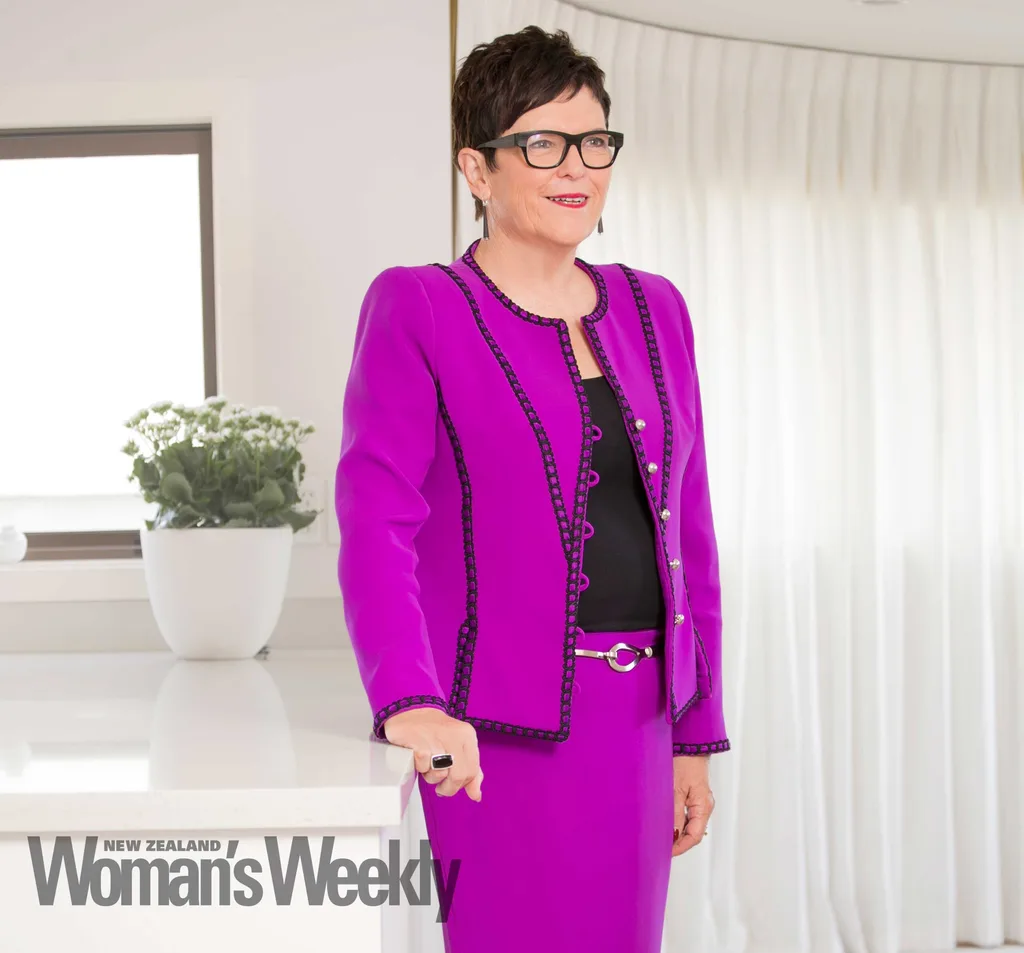
Jenny hasn’t given a magazine interview for a number of years, preferring a much more “under the radar” yet impossibly busy existence following her retirement from politics in 2002.
But the former PM has welcomed the Weekly into the Auckland home she shares with her husband Burton for two reasons – to recognise the 20-year anniversary of her ascension to the top job, but also to celebrate the recent groundswell of women’s voices, both across the world and here in Aotearoa, including the fact we’ve recently welcomed a third woman to the highest office in the land.
“Women are speaking up,” she tells. “People are realising there is just no grounds not to value women’s contributions or to treat them disgracefully. When I was in Parliament, the system shut those conversations down and women would rarely speak up. I could entertain you with some things that happened in Parliament, which one or two people who are still there would not want me discussing. Behaviour I don’t think you’d see now.”
While she won’t divulge just who those one or two individuals might be, she admits she experienced both bullying and sexist behaviour during her time as both a member of parliament and as prime minister, “using the worst techniques that you’d expect”.
“At the time, I decided I would deal with them privately and personally,” she explains.
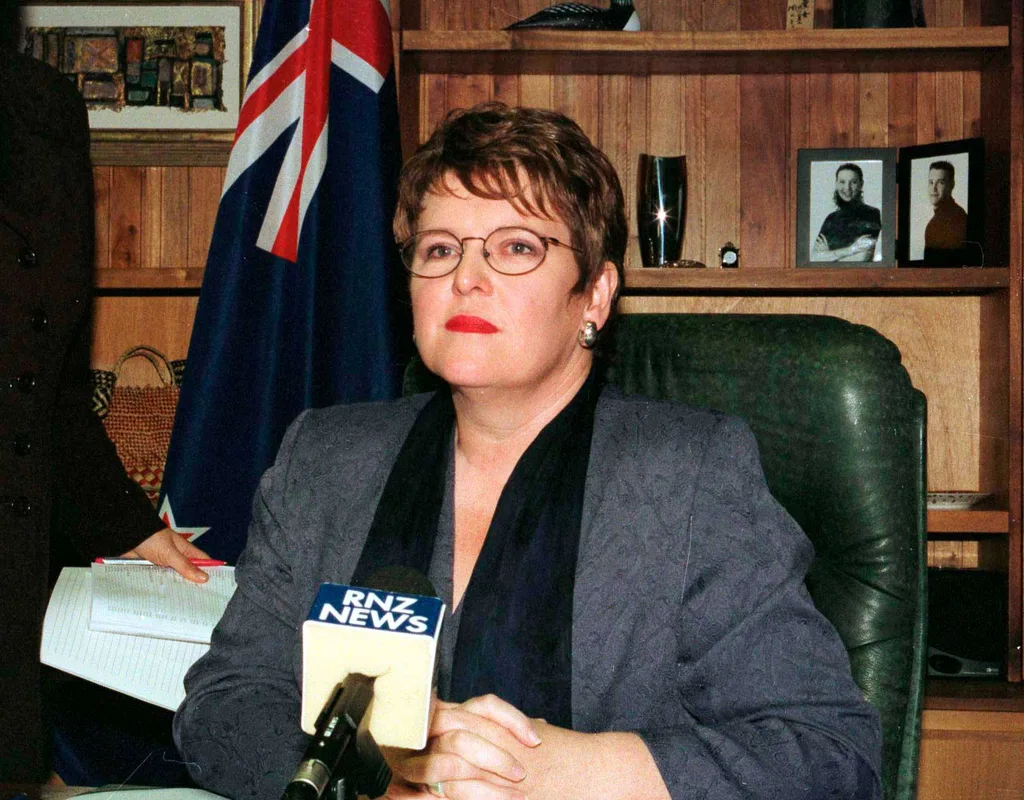
Jenny Shipley as prime minister.
“I never just let them go. There are one or two people who, if they were to be honest, would recall some very sharp conversations when I had to make it clear they would stop doing that or it would become a public debate issue.
“I was very committed in politics to women having a voice and I had the confidence to put myself in that position, even in the early years… I mean, Sir Robert Muldoon once said to me in Caucus that I should be at home on the farm making scones.”
Jenny knows first-hand that Prime Minister Jacinda Ardern has and will be experiencing similar discrimination in the job – such as when she was asked about her plans for children on national television.
“We’ve still seen the bias applied to our new prime minister, but it is different. It’s still there, and the Prime Minister was completely correct to stand up to it. There will be personal comments made that just wouldn’t be made to a man – how you look, what you wear… it’s less of a novelty, but we’re not there yet.”
Despite the obvious political differences, Jenny says she is happy to see another woman in the top job and has the greatest respect for Jacinda, just as she did for the woman who ousted her from the Beehive’s ninth floor, Helen Clark.
“While Helen and I didn’t always agree, we respected each other as leaders. While Jacinda and I wouldn’t always agree, I absolutely respect her as a leader who will do her best in the time and circumstances she finds herself. The worst thing women can ever do is tear each other down. It’s just disgraceful.”
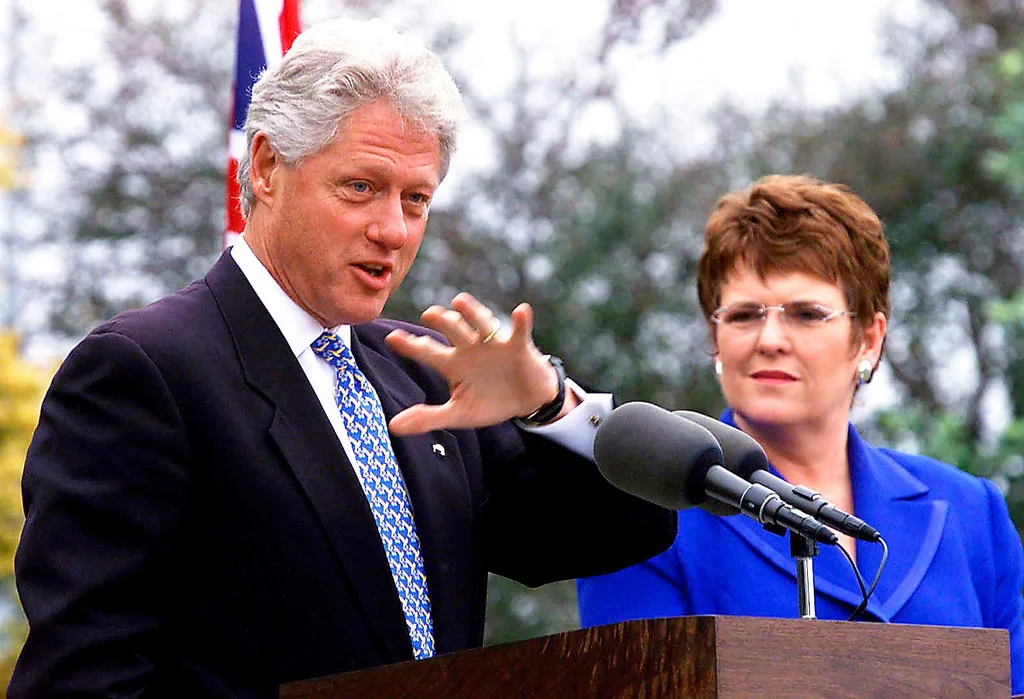
Serving as PM from 1997-1999, she met former US President Bill Clinton.
These days, Jenny balances her interest in New Zealand politics with a host of national and international commitments – she chairs three companies here, is the patron of “goodness knows how many things” and spends a fair bit of time in Asia, as well as mentoring emerging female leaders.
Now eligible for a SuperGold card, Jenny is busier than most 30-year-olds and that’s exactly how she prefers it, thank you very much. Though she does concede she has to remember she’s not actually 30 any more.
“My runway is a bit shorter than it was, although I like to think it’s still quite long,” she smiles.
“I turned 65 this year, which was a big hurdle. But it does feel like 65 years young, not 65 years old. Well, until you try and move. I wake up thinking I’m 35, then I try and get up and I realise I’m not. I’m sure my mind thinks it can still run the country, but I don’t think physically… well, it’s not that bad!”
Indeed, at 65, Jenny’s never looked better, displaying her trimmest figure yet. Prioritising her health is important to her after a brush with death in 2000, when she suffered a heart attack. Happily, she says, she’s now in tip-top shape.
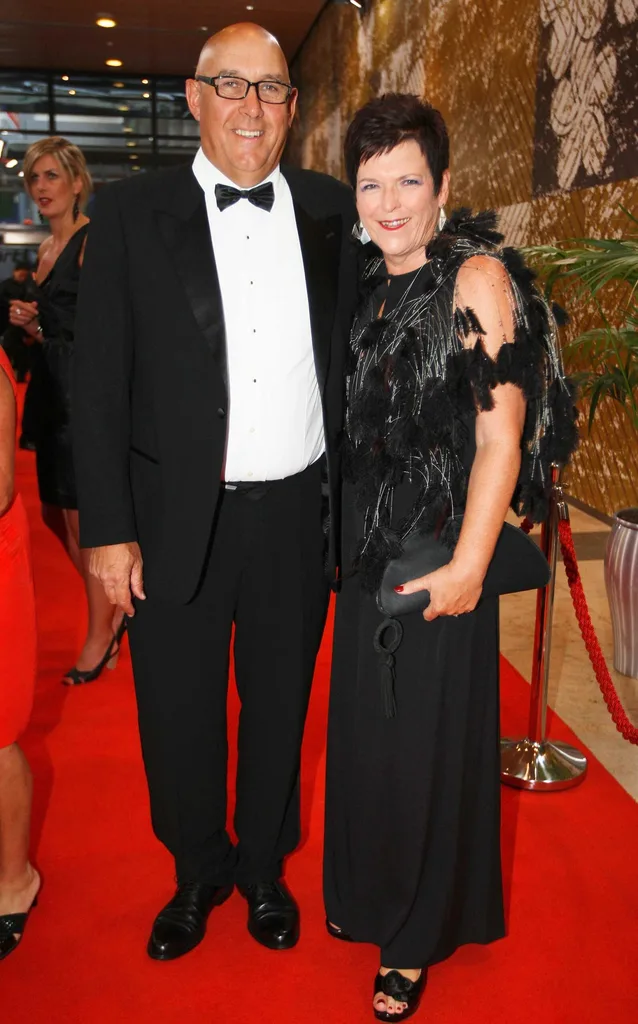
Married for 44 years, Jenny says she still “completely adores” her husband Burton.
“Since I’ve left politics, I’ve had challenges, but I’ve dealt with them. I’ve had great support from the health system and I’ve made some choices that have helped me get the weight off, and deal with diabetes, which I’m right on the margin of but it’s completely under control. I have to work every day on staying healthy, well and fit, I swallow vitamins and minerals, and the sorts of things people who have had heart attacks have. I feel lucky. I’ve ducked a bullet and to be honest, I should have addressed it a truckload earlier.”
Her primary motivation for keeping healthy is so she can keep up with her four young grandchildren, Zara, Otis, Flynn and Coco, who are the absolute lights of her life, as well as to spend quality time with Burton.
“I have a family who I love to bits,” she says. “My kids Anna and Ben are grown up now, and I’ve got four gorgeous grandchildren. I’m very proud of my kids, who came through life knowing that mothers do stuff and they step up. They had parents who were wrapped around them, but who also had careers.”
Jenny can still recall the “absurd conversation” she had with her then-19 and 20-year-old children on Easter weekend in 1997, eight months before she toppled Jim Bolger and became leader of the National Party.
“I told them I might be prime minister before the end of the year, but I would only do this if they understood what it would mean for them,” recalls Jenny.
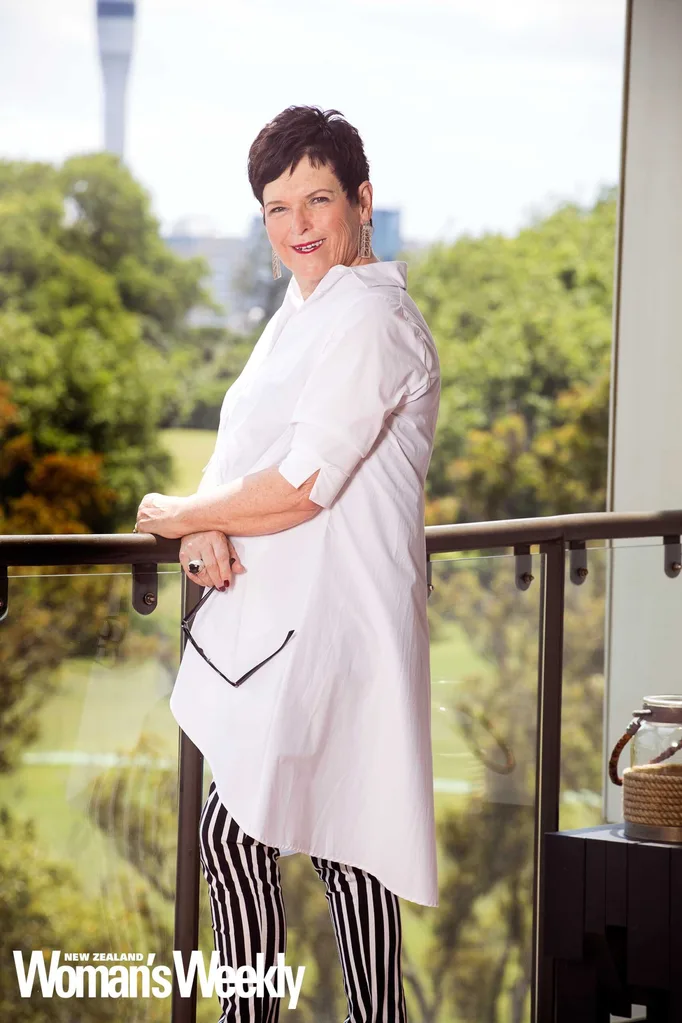
“I was fully aware that if a woman became PM, it would cause an avalanche of public attention. But they were completely fantastic.”
The events of 1997 now seem like they took place in another life, she muses. But as she looks back, she’s adamant she has absolutely no regrets.
“I don’t dispute I made mistakes, but I can honestly tell you I did my best under the circumstances.”
There were unique mountains to climb during her time as the Beehive’s Queen Bee and even before that, she suffered unpopularity due to tough welfare cuts in her role as Minister of Social Welfare.
“Look, everyone likes to be popular, let’s be clear about that,” she says with a wry smile.
“It almost always depends on whether you’ve got a headwind or a tailwind. It just happened that my generation, and my era in particular, we had gale-force headwinds. Today, we’ve got tailwinds. I was trying to create choices and now New Zealand has choices.”
She does admit some of the behaviour of her colleagues did affect her.
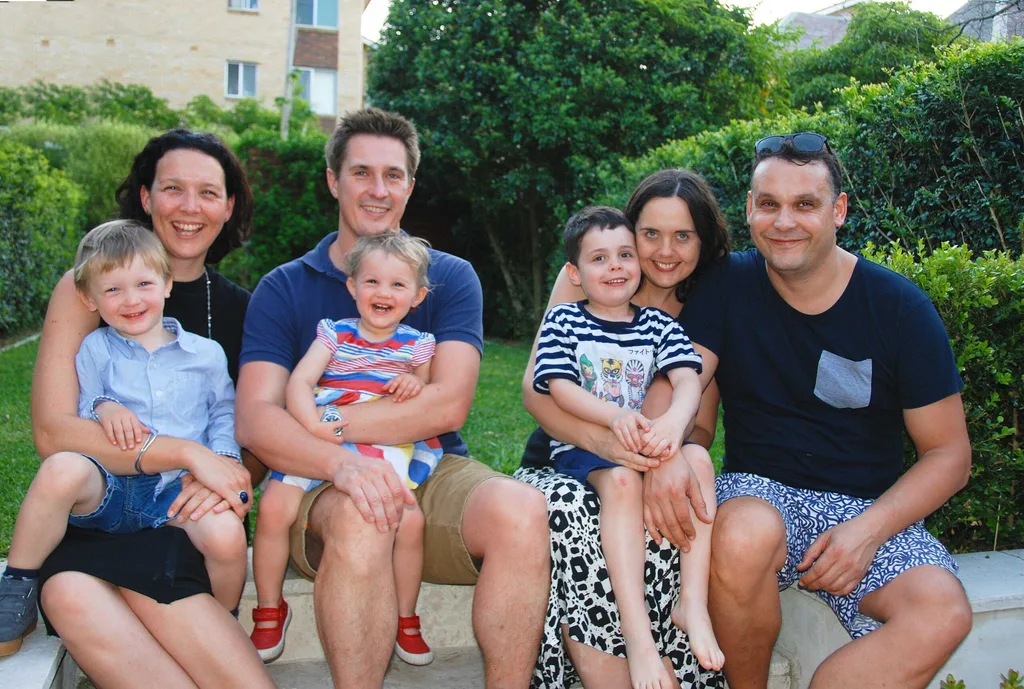
Daughter Anna with Flynn, son-in-law Andrew with Zara, daughter-in-law Chelsey with Otis and son Ben.
“Many women would feel the same thing. That question of, ‘Am I worthy?’ You have to have broad shoulders and a sense of humour, but I also had an extraordinary mate – there were days where Burt would pick me up and shake me out and say, ‘Come on, you can manage.’ And when I was confronted with sexism, I asked myself the same question – is this about them or about me?”
Finding that the majority of the time it was indeed about them, Jenny instead focused on making the tough calls on behalf of the nation.
Inclusivity, she tells, was always at the centre of her decisions, and shaped some of her proudest moments, such as her decision to be the first prime minister to attend a gay pride march, as well as her call to resume the PM’s visits to Waitangi. She was also the first woman to chair an APEC summit – navigating the diplomatically touchy issue of some male leaders who didn’t want to shake her hand.
“We should value difference,” she shrugs. “When I went to gay pride, it’s not because I’m gay – I want people who are not necessarily the majority to feel they’re respected and valued and included.”
Despite the obvious passion with which she still speaks of politics and social issues, Jenny’s firm when she says she doesn’t miss politics at all. That, she says, is firmly in the past. However, she still can’t help watching the events of the day from a distance, but grateful to have hung up that cloak a long time ago.
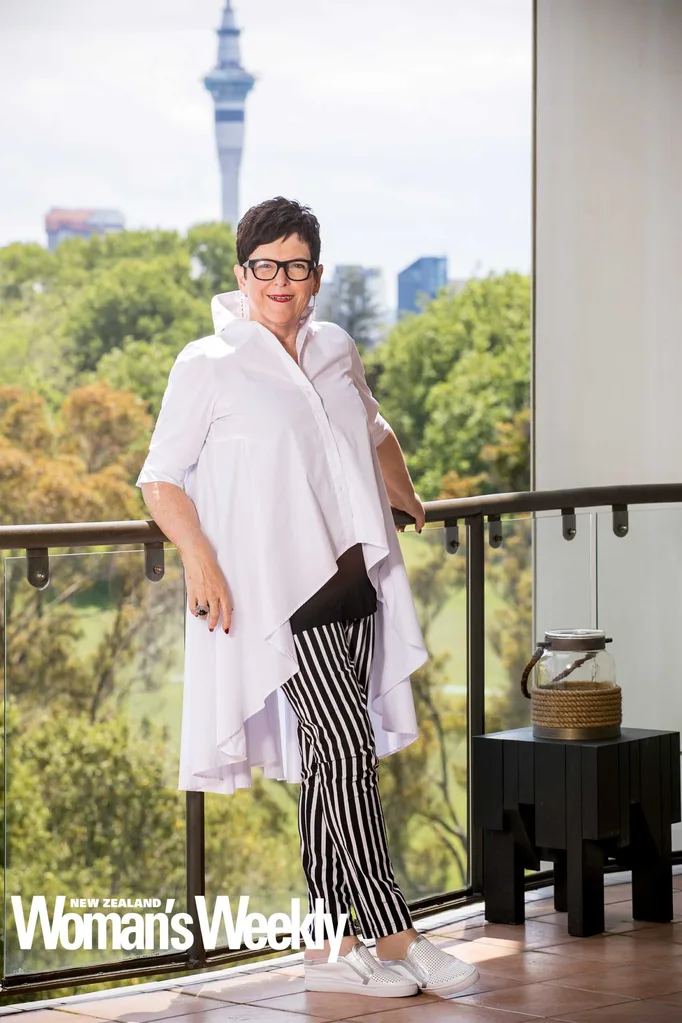
So if being our first female prime minister doesn’t define her, who exactly is she?
“I’m Jenny Shipley,” she says simply. “Literally, in this order, mother, grandmother and married to a guy for more than 44 years whom I still completely adore. We’re friends, and we work hard at that relationship and it’s precious to me. He’s allowed me to have the confidence to be who I am.
“And I’m comfortable in my own skin. At 65 years young, I still have lots of things I want to do. Life’s good.”
